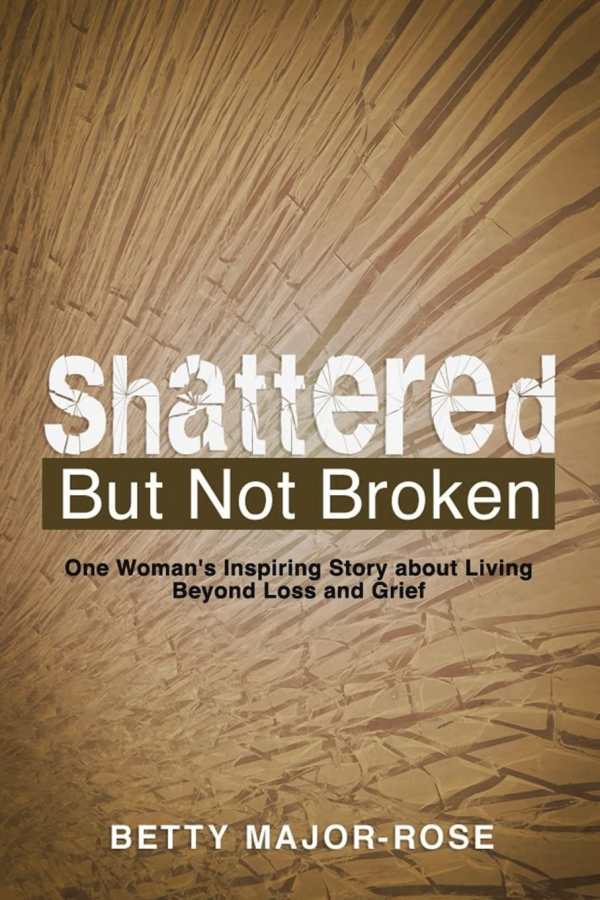Shattered but Not Broken
One Woman’s Inspiring Story about Living beyond Loss and Grief
Knowing that grief changes but doesn’t go away, Shattered but Not Broken mines personal experiences for lessons on healing.
Betty Major-Rose’s memoir Shattered but Not Broken has self-help components; it recalls her tremendous personal losses within the context of a dignified, holistic examination of grief.
When she was a child in New Orleans, Major-Rose’s brother Sonnyboy drowned. Her family had difficulty expressing their grief. The silence had a lasting mark on Major-Rose and her siblings. A decade later, when Major-Rose’s husband was killed in a car accident, leaving her a widow with four children and a baby on the way, Major-Rose vowed to do better for her own children. She was intentional about acknowledging her pain and theirs. But all the intentionality in the world couldn’t prepare her for the tragedy to come almost fifteen years later: her teenage daughter’s murder.
Major-Rose’s experiences as a grieving sibling, wife, and mother are centered, alongside lessons from her time as a community grief counselor. The book notes that grief changes but doesn’t go away, that a new loss can make a previous one come rushing back, and that shutting down and avoiding expressions of grief can create additional pain within a family. And the chapters are topical in addition to being chronological, addressing subjects like becoming independent after the death of a spouse as they arose within Major-Rose’s own life. Often, they conclude with reflections—bulleted lists of recommendations for others dealing with their own grief. These include both general recommendations, like giving oneself adequate time to grieve, and specific advice, as on supporting a grieving child by acknowledging their emotions and encouraging them to express their feelings.
While it is accessible and encouraging, the prose is also inconsistent. Some sections have a smooth narrative flow; others have jolting transitions between topics or contain repetitive rephrasing, diluting the power of significant events. This extends to Sonnyboy’s drowning: the book notes that horrific decomposition prevented Major-Rose from seeing his body, making his death difficult to accept, but it does so several times without need. And the quoting of inspirational biblical passages, which reflect how Major-Rose felt supported by her religious beliefs in the course of her grief, is somewhat at odds with the book’s emphasis on finding one’s own way to healing. More helpful is the book’s decision to challenge clichés like “grief is a rollercoaster,” using them to unpack cultural assumptions on the topic.
The memoir of a grieving widow, sister, and mother, Shattered but Not Broken models realistic strategies for healing.
Reviewed by
Michele Sharpe
Disclosure: This article is not an endorsement, but a review. The publisher of this book provided free copies of the book and paid a small fee to have their book reviewed by a professional reviewer. Foreword Reviews and Clarion Reviews make no guarantee that the publisher will receive a positive review. Foreword Magazine, Inc. is disclosing this in accordance with the Federal Trade Commission’s 16 CFR, Part 255.

